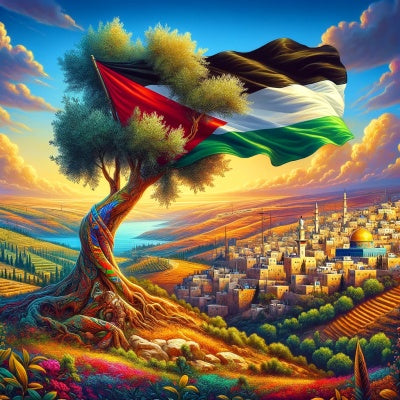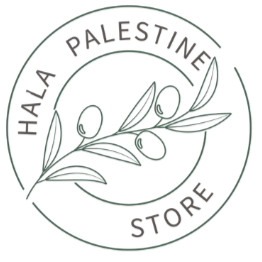
Standing in Solidarity with Palestine: Supporting Small Businesses in the Face of Economic Oppression
In the heart of Palestine, small businesses are the lifeblood of the economy and a symbol of resilience and hope. From the traditional soap makers of Nablus to the ceramic artisans of Hebron, these businesses not only preserve the rich heritage of Palestine but also sustain families and communities against all odds. However, the challenges they face are far greater than most could imagine. The Israeli occupation imposes crippling economic restrictions, including preventing essential materials from entering factories and creating barriers that make running a business a constant struggle.
The Economic War on Palestine
The economic war on Palestine is as real as the physical barriers that divide its land. Factories and small businesses in Palestine often find themselves waiting for raw materials that never come. Imports are delayed or outright blocked at checkpoints, leaving business owners in limbo and livelihoods hanging by a thread. These deliberate restrictions are part of a broader strategy to undermine the Palestinian economy and deepen dependence on foreign aid. This makes supporting local businesses not just a matter of economic importance but an act of defiance against injustice.
According to the United Nations Conference on Trade and Development (UNCTAD), these restrictions have caused significant economic losses, estimated at billions of dollars over the years. The UNCTAD report highlights the severe impact of these policies, noting that the Israeli blockade has decimated the manufacturing sector, particularly in Gaza, where small businesses are vital to local communities .
Why Supporting Palestinian Small Businesses Matters
When you support a Palestinian business, you are doing more than making a purchase. You are directly contributing to the survival of an entire community. Small businesses in Palestine are not just sources of income—they are spaces where culture is preserved, crafts are passed down through generations, and communities are built. By choosing to buy products made in Palestine, you are standing in solidarity with a people who continue to fight for their right to work, create, and thrive on their own terms.
This is especially crucial now, as the economic siege tightens. Every scarf, every piece of pottery, every bar of soap purchased from a Palestinian business represents more than a transaction. It is a declaration of support for the right to economic freedom and a stand against the forces that seek to strip Palestinians of their dignity and independence. According to a 2018 World Bank report, the economic growth of the Palestinian territories has been significantly stifled by these barriers, with restrictions on the movement of goods and people hampering trade and entrepreneurship .
How You Can Make a Difference
There are many ways to stand in solidarity with Palestinian businesses. Whether it's through direct purchases, sharing their stories on social media, or encouraging friends and family to learn more about the Palestinian struggle, your support matters. It is through these acts of solidarity that we help build a bridge between Palestinian entrepreneurs and the global community, ensuring that their voices are heard and their products are valued.
At a time when the world is more connected than ever, we have the power to make a real impact from anywhere. By uplifting Palestinian small businesses, we send a message that we refuse to be silent in the face of injustice, and we believe in the right of Palestinians to build a future rooted in economic empowerment and self-sufficiency.
Join the Movement
In standing with Palestinian businesses, we are also standing with the Palestinian people in their ongoing struggle for justice, dignity, and freedom. Together, we can help build a future where Palestinians are no longer marginalized economically, but instead are thriving as equals in a world that values their contributions and respects their rights.
Now more than ever, your support is needed. Let’s stand in solidarity with Palestine—one business, one purchase, one act of support at a time.
---
References:
1. UNCTAD. (2019). The Economic Costs of the Israeli Occupation for the Palestinian People: Cumulative Fiscal Costs. United Nations Conference on Trade and Development.
2. World Bank. (2018). Economic Monitoring Report to the Ad Hoc Liaison Committee. World Bank Group.
Previous post
A Phoenix Rises in Nablus
Next post








